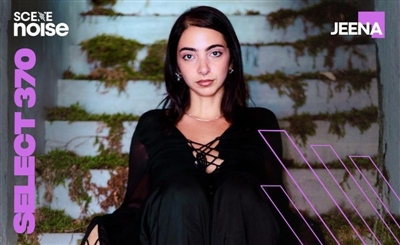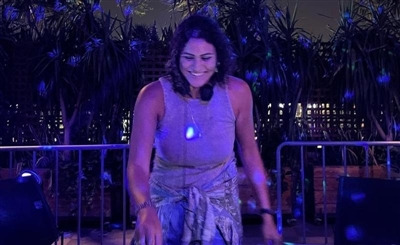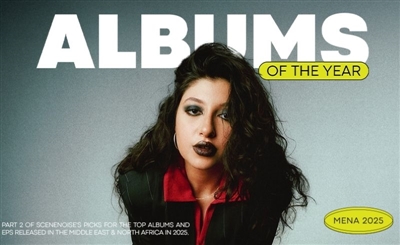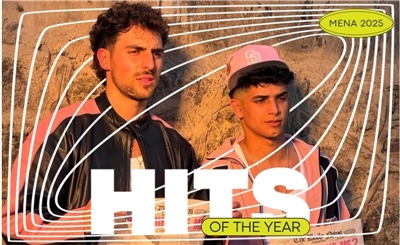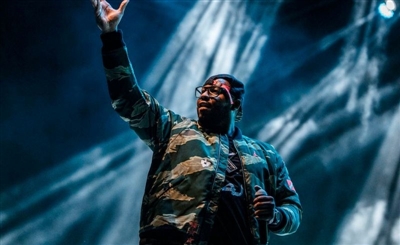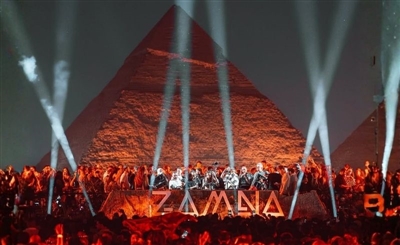91 Portraits: Syrian Artist Eqtibasat on Working Through Depression and Trauma with Music and Illustration
Berlin-based musician and illustrator, Hekmat Alkassar, speaks to SceneNoise about his ambitious and very personal project, '91 Portraits' - a music album and illustration book that work in symbiosis to give him a cathartic release and a way of addressing the depression and trauma that he has experienced.
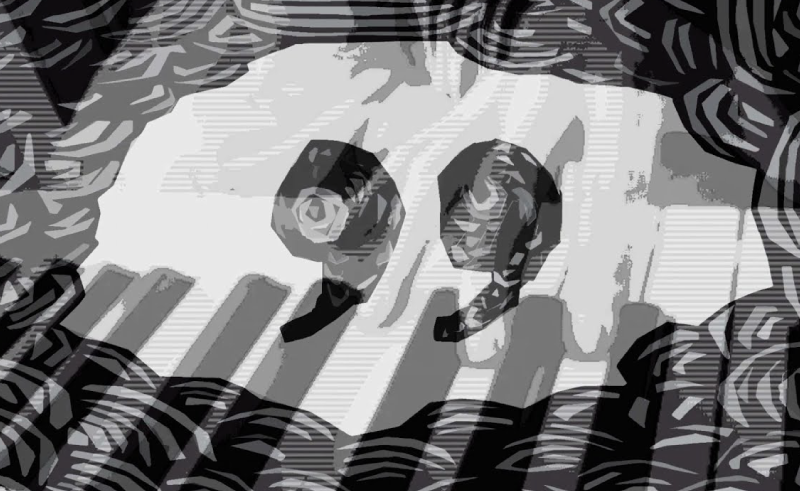
If there’s something
called fast food and something called fast fashion, surely there’s an argument
to be made that, at this point in our human existence, there’s also something
called fast music. It’s become more apparent than ever with the COVID-19
pandemic. There’s been an explosion of creativity during the lockdown, as
artists from across the Middle East push out release after release. Some of it
has been fantastic and a browse through the ‘New Music’ and ‘Reviews’ sections
on SceneNoise attests to that. Some of it even owes its essence to the
lockdown, as some artists get to grips with both the practical challenges and existential
stirrings of living through a global pandemic. Some of it, however, has been ‘fast
music’; predictable, conventional and floating untethered from any grander visions
or plans, even when they’re ultimately satisfying enough.
Even
outside of the context of the pandemic, it’s rare to find a musical project as
intricate and unrestrainedly created as 91 Portraits. As the brainchild
of the Berlin-based Eqtibasat (aka 29-year-old Syrian artist, Hekmat Alkassar),
it’s an expansive, ambitious piece of work in which Alkassar uses another of
his talents: illustration. The two crafts come together as something of a
cathartic exercise for Alkassar, the project allowing him to address and work through
depression and post-traumatic stress.
You see,
beyond being a nine-track album that traverses a number of different style and
soundscapes, 91 Portraits is also a book that, as the name suggests,
features 91 original illustrations that convey human emotion. The Homs-born,
Damascus-raised artist first begun creating the illustrations in September 2019;
he would produce one almost every day and when he wasn’t doing that, he was
creating the music – essentially doing both things simultaneously for several
months, giving the whole thing a unique symbiosis, as each fed of the other.
<iframe width="800" height="450" src="https://www.youtube.com/embed/B9vPdOQcfoU" frameborder="0" allow="accelerometer; autoplay; encrypted-media; gyroscope; picture-in-picture" allowfullscreen></iframe>
When you
listen to the album and/or scroll through the illustrations, you can find your
own interpretations, with some of the illustrations inviting you to seek its
detail. The music is very much experiential and transformative in nature, too,
leaving it open to interpretation, wither alone or alongside the illustrations.
But a work of this density, thought and dedication demands that the man behind
it all explains it himself.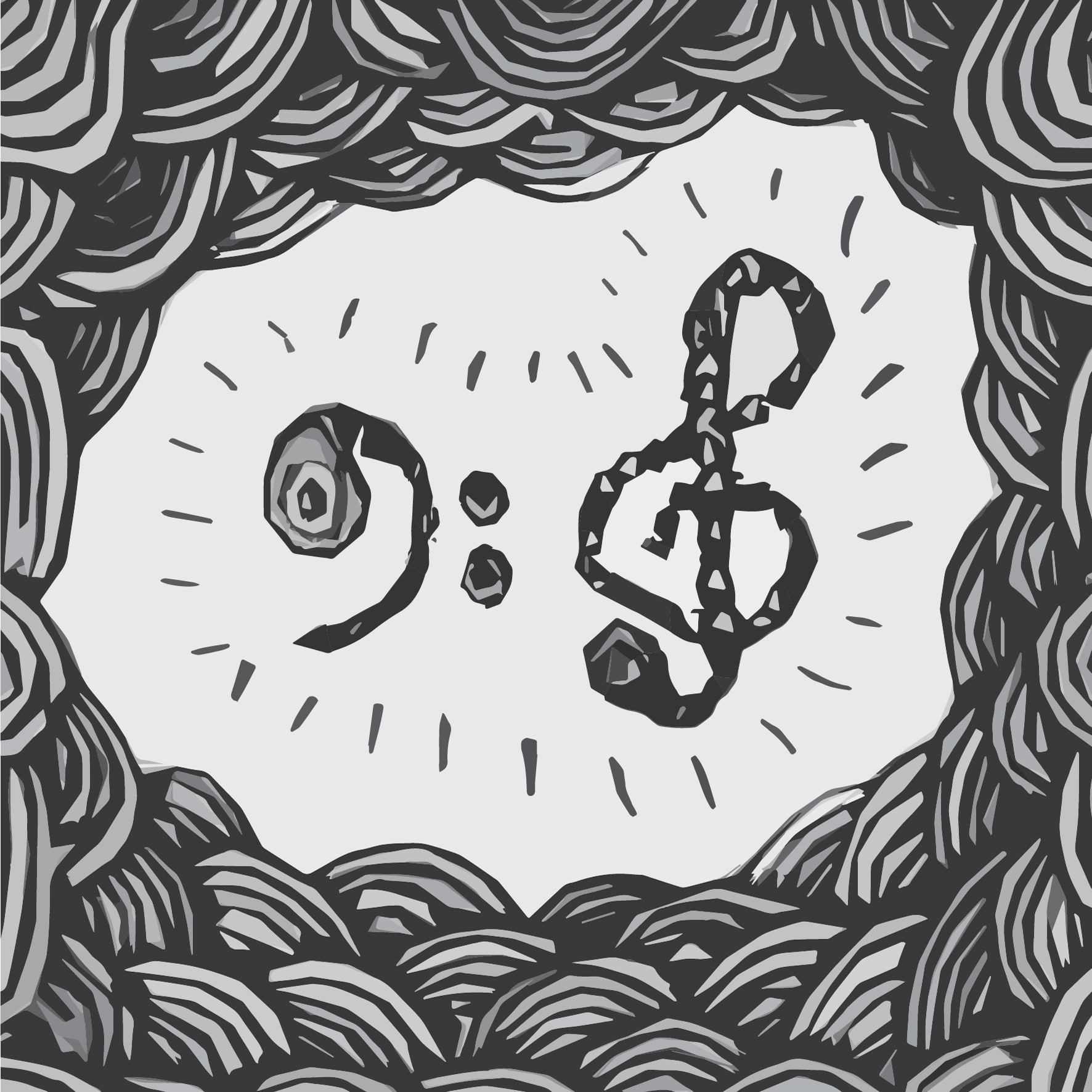
-Before
we start, I have to tell you that I felt really awkward about how to ask you if
you were a man or a woman…
No
awkwardness at all, I would ask the same. I'm male, but I love the fact that
the name Hekmat can be both male and female.
-Alright,
before we get to 91 Portraits, tell me a little about your background as
a musician, because there are many that will recognise you outside of Eqtibasat.
I used to
play with a lot of cover bands in Damascus, but I officially started making original
music in 2013. That's when I recorded as a guitarist with [Syrian-Lebanese
post-rock band] Khebez Dawle. Our first album was titled Khebez Dawle. After
we recorded the album, I also joined [Psychedelic-Indie/Dream-Pop band] The
Last Postman in 2014. We recorded a few singles, and an album of five songs in
Berlin in 2016 titled Two Years Later, which was released in 2019.
It was in
2018 that I founded Eqtibasat as a solo project where I make music related to
illustrations/visual videos.
-Take me
even further back – how did you get hooked on this crazy drug called music?
I taught
myself through the internet how to play. Firstly, metal music, influenced by
heavy metal/thrash metal bands. I also used to cover music from video games and
films, which was a variety of musical genres, mostly classical, sometimes
ambient, sometimes rock/metal. That was basically how I learned to play guitar
and piano.
-With
all of that in mind, who do you consider to be your musical influences?
As a
teenager, I was very much influenced by a Japanese composer named Nobuo
Uematsu, who is known for the music of Final Fantasy, a game I used to play a
lot. Strangely, Metallica have also been a big influence on my guitar passion,
especially when learning to play the electric guitar. Later on, I started to
meet/know the alternative Arabic scene, and bands like Tanjaret Daght and El
Morabba3, as well as Khebez Dawle, before we became band members.
I’ve been
inspired by a lot of musicians, but recently I've been influenced by the work
of Alva Noto, especially his collaboration with Ryuichi Sakamoto and their
album, Vrioon. Nils Fraham is also a newer influence.
-Here’s
the big one: who or what is Eqtibasat?
It’s a solo
project of my work as a musician and also a visual designer/illustrator. I
started two years ago when I would draw to overcome depression, traumas and experiences
with psychotic episodes – and even to just express unspoken thoughts and emotions.
The name Eqtibasat
– which means ‘quotes’ in Arabic – came after the idea of this need to express
traumatic thoughts and emotions. For me, each of them came with a feeling, like
when I read a quote in a book. Instead of writing a book about what I
experience, I would express the quotes of different experiences, from the past
or the present, or a future [with illustrations and music].
-How did
91 Portraits come to be and how did you come up with the concept?
Basically,
it’s an album and an illustration book about 91 emotions. The book consists of
184 pages; 91 hand-drawn illustrations, 91 of the same illustrations modified
digitally, and two empty pages in the same style of the book for the owner to
draw their own illustrations on. The illustrations are divided up into: 27 Portraits
of Existence, 39 Portraits of Misery and 24 Portraits of Love. 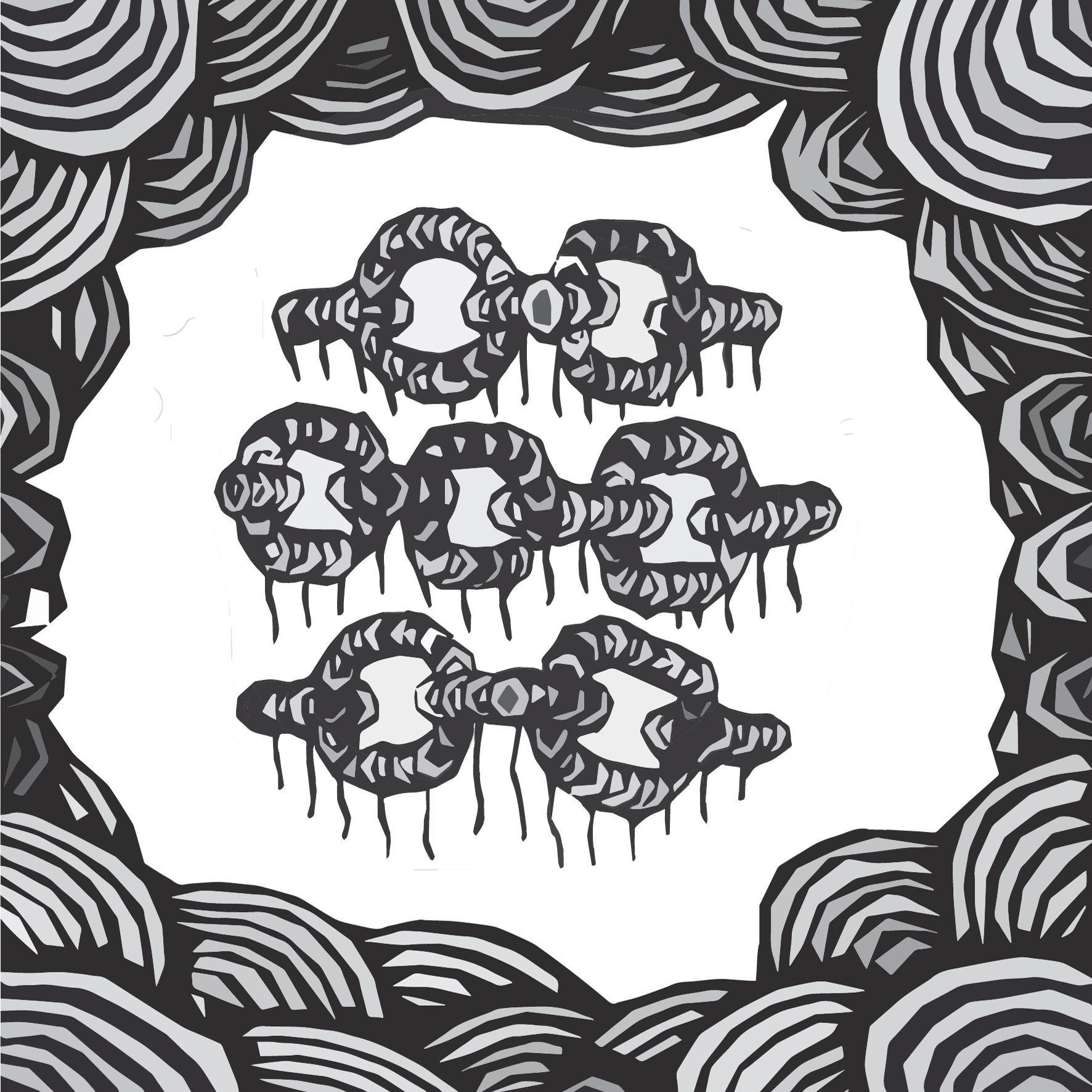
I actually started as an idea when I read an
article about the 20 words/degrees of love in the Arabic language. It just felt
interesting to me as a concept itself. I was looking for something to draw and,
at the same time, had wanted to create a book of illustrations that have the
same style. At one point, I decided to expand the 20 degrees of love into
different emotions, so I made a list of 91.
-There
must be a reason behind the number 91…
There are
two reasons. Firstly, the notebook I used for the project had 92 pages, so I
decided that I would use one to create the cover, leaving me with 91 pages. It’s
also the year I was born, 1991. So, I decided to create portraits of 91 emotions
as a diary of my experiences with depressions, therapy and medication.
-The
album sways between a lot of different sounds and genres. What was the process
of ‘creating’ in that regard?
Well, the
main approach to starting a song as Eqtibasat is that it has to initially be a
piano piece. I add all the other elements later. The first Eqtibasat EP, Quotes,
was recorded like that. Same goes for 91 Portraits; I started by making melodies
on piano, then I added elements of glitch music and other experimental sounds.
I even used
glitch effects on the piano melodies themselves. For example, ’28 Portraits of
Existence’ was a simple piano melody. I added glitch effects, which I found
interesting, so I added another layer of piano on top, then another, and so on.
Of course, the beats and the other elements coma along to sauce-up the music
even more. I chose ‘Q’, one of Eqtibasat’s
characters, to sing the song. ‘Q’ has a robotic voice that speaks English. ‘Q’
can be seen on the Eqtibasat website.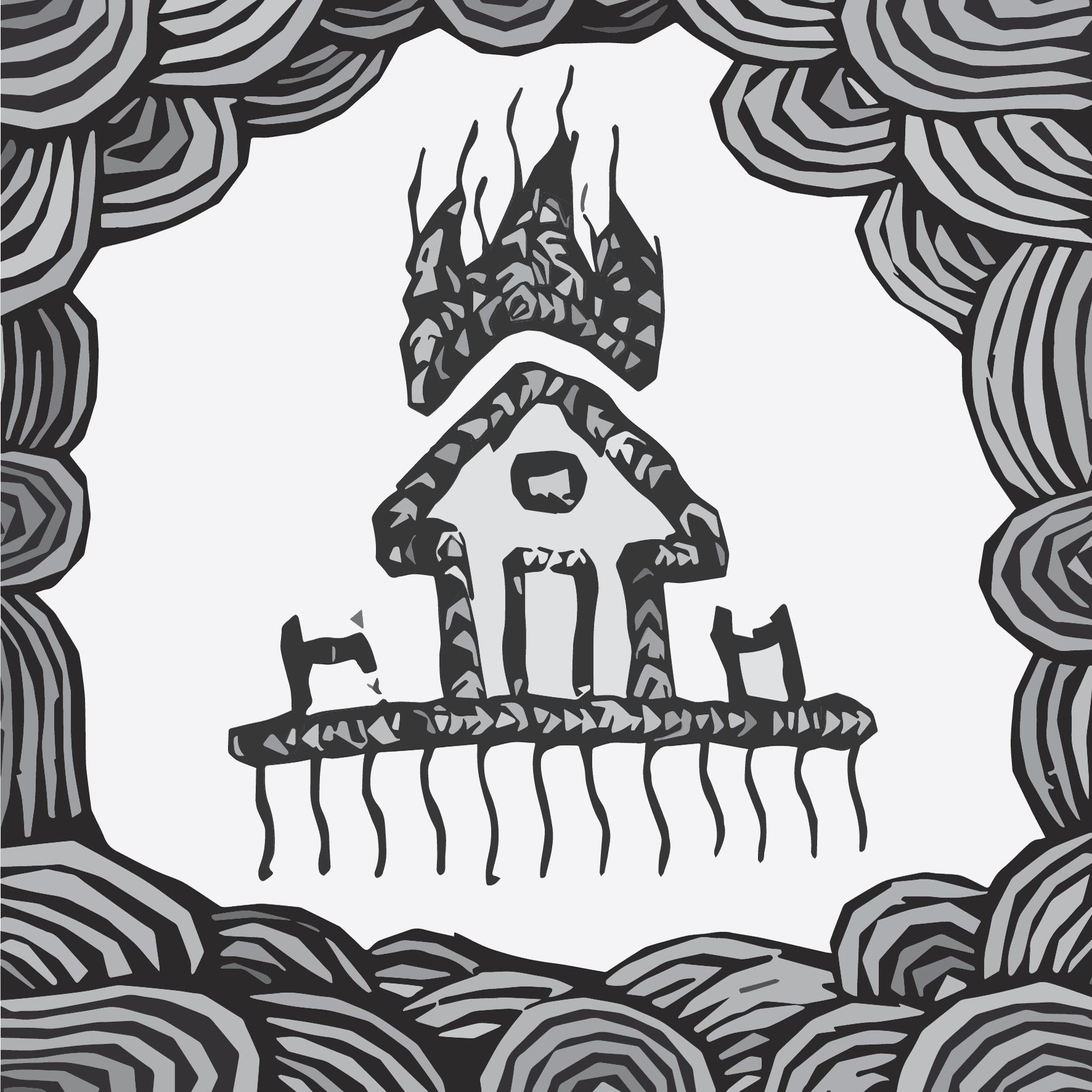
-What
kind of equipment did you use and who on earth is ‘Q’?
The album
was mainly recorded through VSTs (Virtual Studio Technology), using Ableton as
the main interface. The album has a mixture of piano VSTs to create a natural,
interesting sound of piano, whether for the glitch parts, or the pieces of
piano such as ‘1 Step Backward 10 Steps Forward’. The main approach was
layering on as many piano layers and effects as much as possible - without
overdoing it, of course - and trying to make it sound live as much as possible.
The ‘Q’
voice is from a robot voice generator that works in a similar way to Google
Translate. I also used robot voice VSTs to add some effects, in order to give
it his/her own character.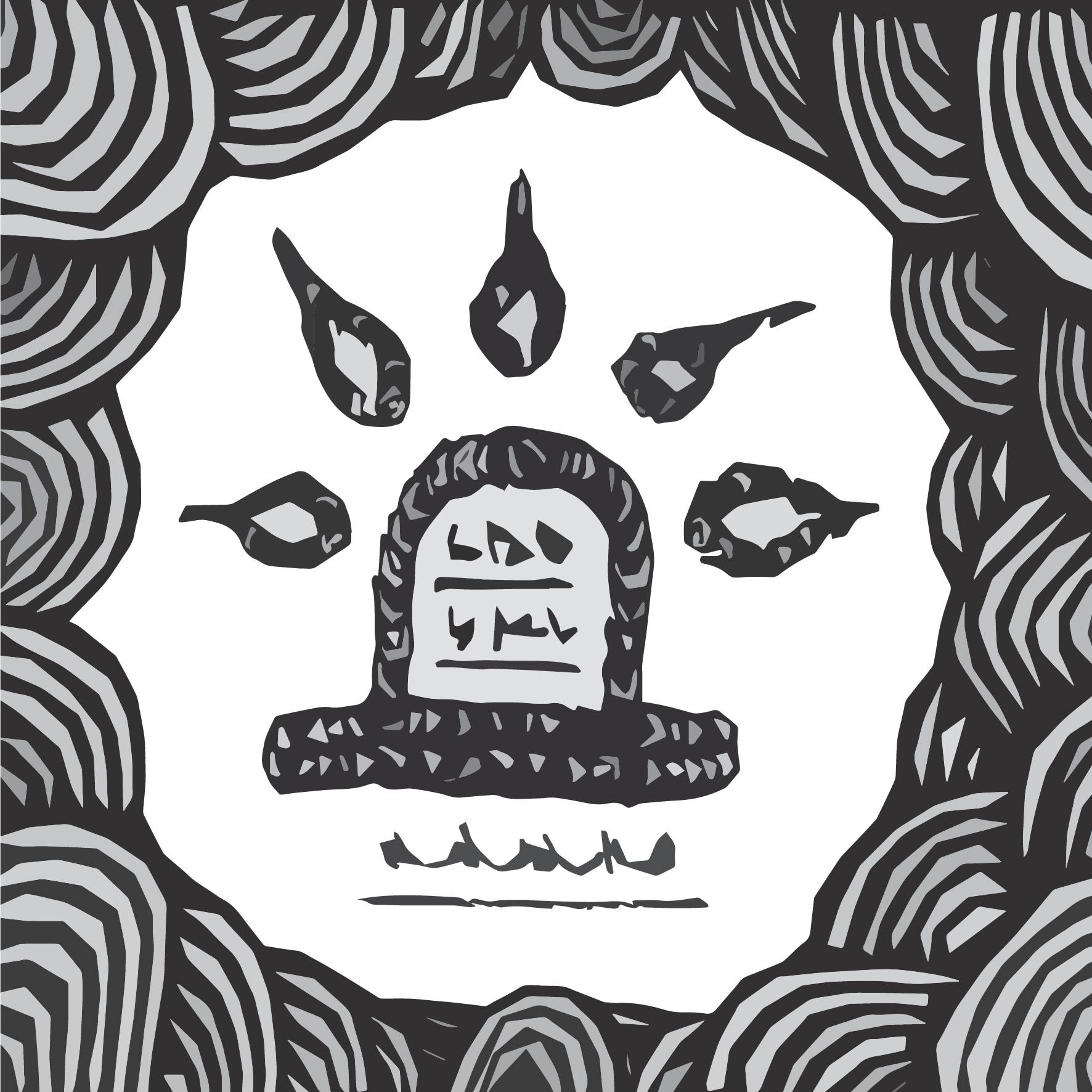
-How
long did this all take to complete?
It took a total of nine months, starting from September 2nd, 2019. I first released it on June 19th on YouTube and Facebook, before putting it on streaming platforms and the website. I finished the book on January 11th. I wanted to finish it on my birthday, as a sort-of therapy to start a new path against depression and to start expressing more.
Check out the full collection of illustrations here and purchase the music album on Bandcamp here.
Follow Eqtibasat on his official website.
- Previous Article test list 1 noise 2024-03-13
- Next Article Dubai-Based Aux Lord Mixes Afro and Electro Beats in Latest Track ‘Elevation’
Trending This Month
-
Dec 24, 2025
-
Dec 23, 2025



